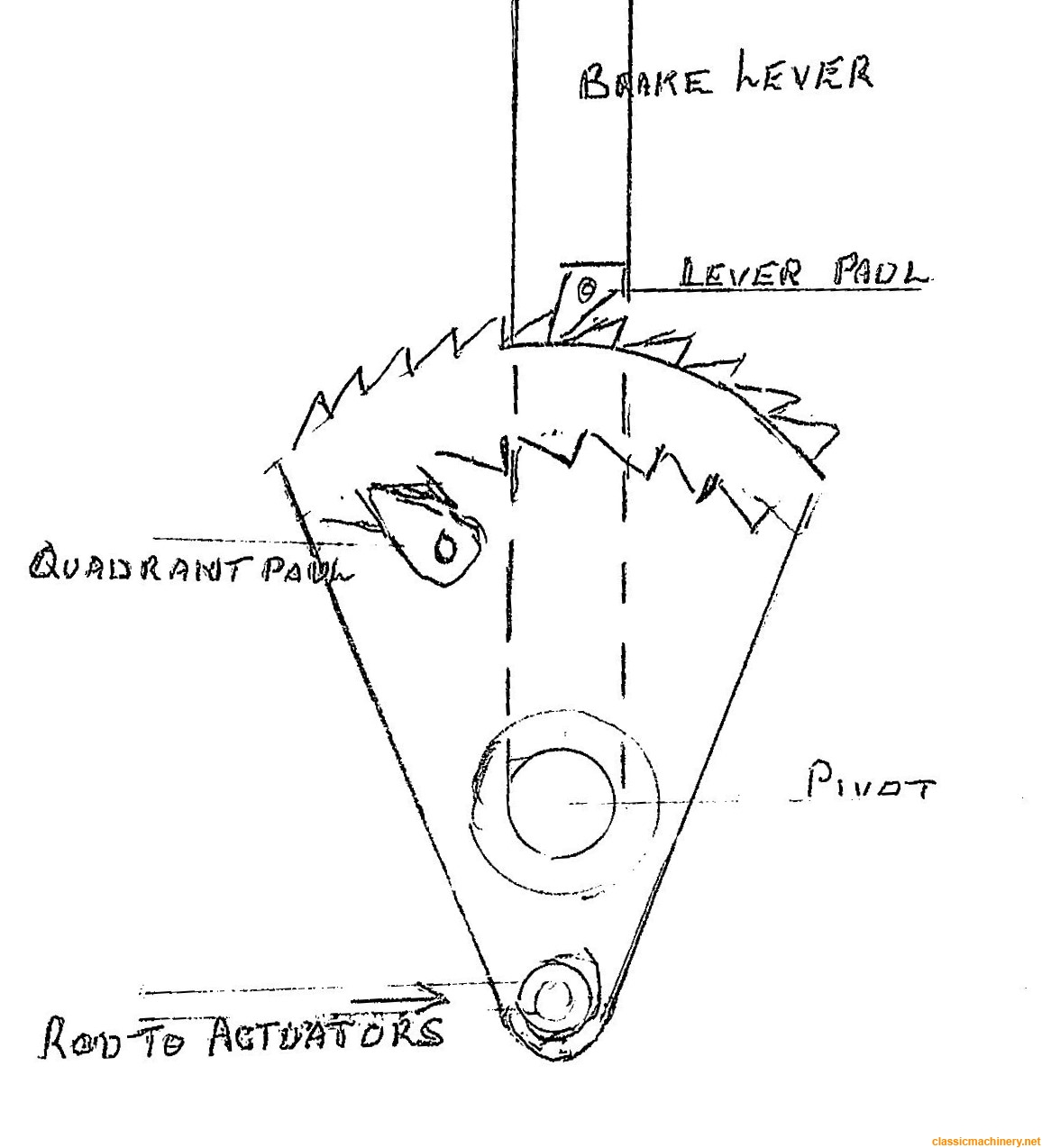essexpete wrote:How did the multi pull work Fred?
I never understood Dad's AEC with a ratchet that was air operated.
Would that Leyland have really pushed over that rough ground or was that 1950s photoshop?
Hi Pete,
I thought after I posted that someone may ask questions about the multi-pull brake.
The multi-pull was a rod operated hand brake with no power assistance, it therefore required a long lever to multiply, (gear down), the force exerted by the driver.
The lever, above its pivot, needed to be roughly eight or ten times the length of the short end below to achieve the pull required which meant that there was not enough travel at the short end to apply the brake.
The multi-pull allowed the driver to take about three pulls to build the amount of travel required without loosing effort. I'm struggling to explain the workings so I drew this rough sketch to help.

There is a quadrant linking the lever to the rod which operates the brakes. The quadrant has two pawl and ratchet arrangements.
The top one in the sketch engages the quadrant when the lever is pulled and the whole thing moves as one, pulling the brake on.
The quadrant, (bottom), pawl then prevents the quadrant slipping back keeping the brake on whilst the other pawl allows the lever to slip forward and latches on ready for another pull.
There is obviously a release mechanism. This operates when the lever is banged forward to the front of its travel. The release sounded like a gun going off.
I hope you can follow my ramblings.
Fred


